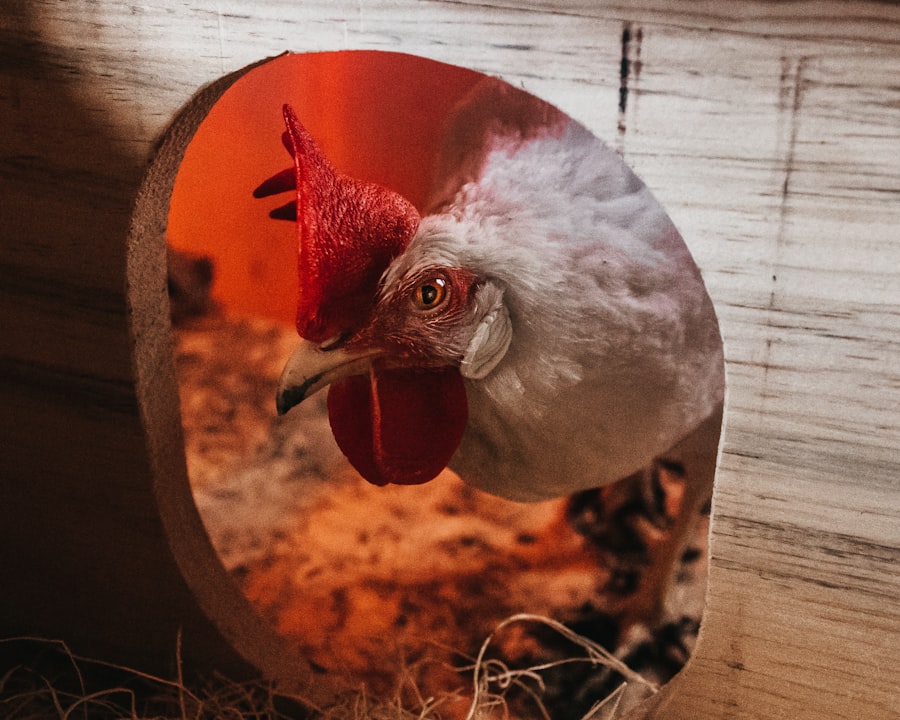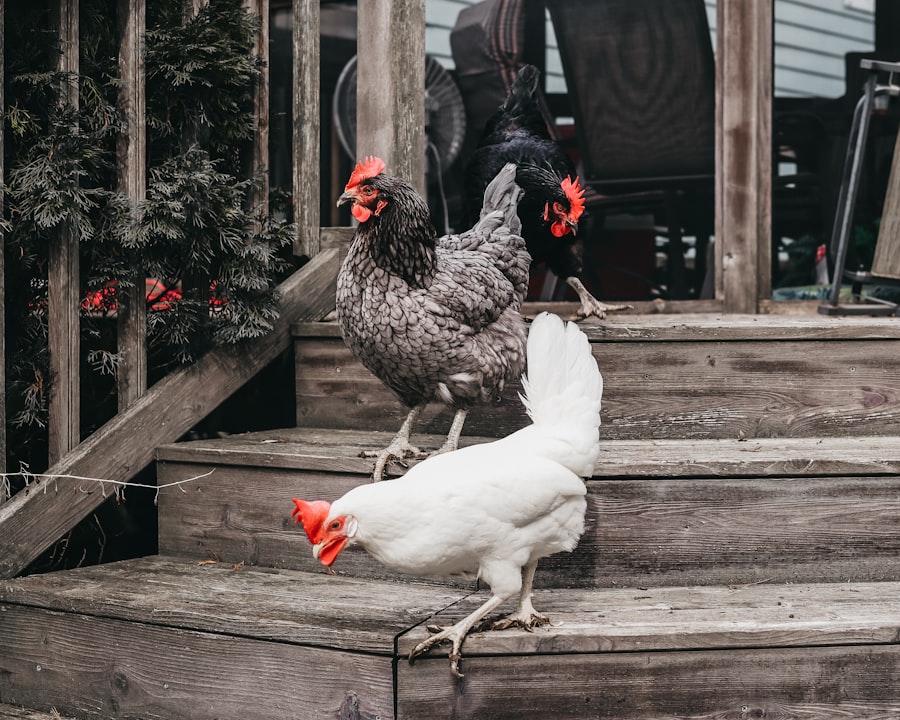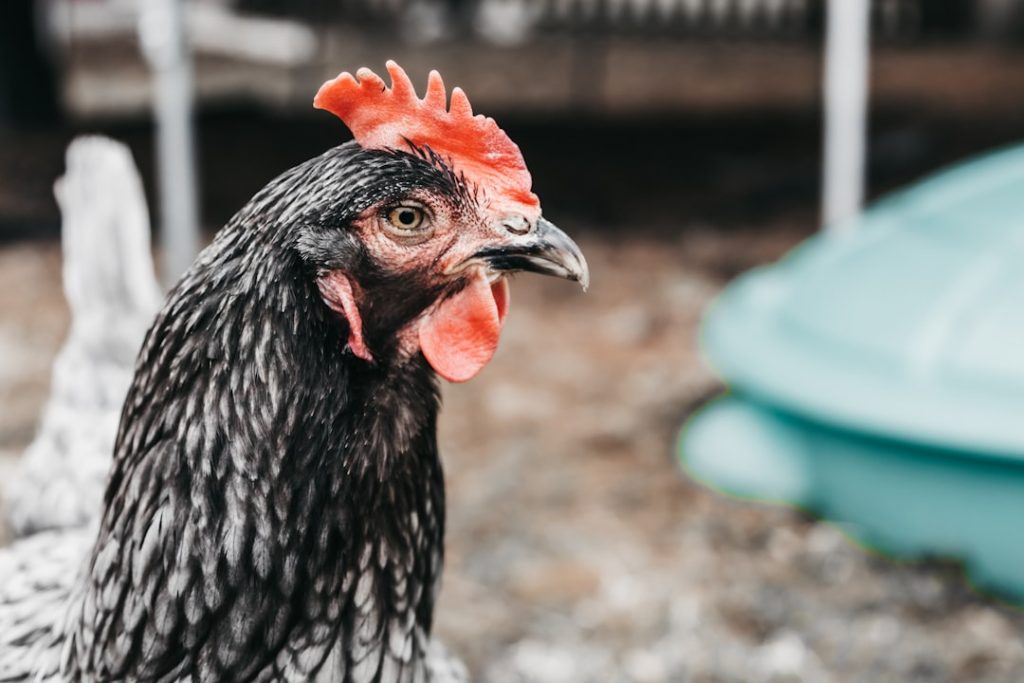Backyard chickens have specific requirements that must be fulfilled to ensure their health, happiness, and overall well-being. These needs include a safe and secure living environment, proper nutrition and hydration, opportunities for natural behaviors, health and hygiene maintenance, and protection from stress and predators. Understanding and addressing these needs is essential for successful backyard chicken keeping.
Chickens are social creatures that benefit from living in flocks. They require space to roam, scratch, and dust bathe, as well as protection from predators and harsh weather conditions. A suitable living environment for backyard chickens consists of a secure coop and run.
The coop should be well-ventilated, predator-proof, and equipped with roosting bars and nesting boxes. The run should be spacious and enclosed with sturdy fencing to ensure the chickens’ safety. It is crucial to provide adequate space for each bird to prevent overcrowding and potential aggression within the flock.
Proper nutrition and hydration are vital for maintaining the health and productivity of backyard chickens. A balanced diet consisting of high-quality layer feed, supplemented with fresh fruits, vegetables, and occasional treats, provides the necessary nutrients for optimal health and egg production. Constant access to clean, fresh water is essential for keeping chickens hydrated.
Regular monitoring of food and water intake helps ensure that chickens are meeting their daily nutritional requirements.
Table of Contents
- 1 Providing a Suitable Living Environment
- 2 Ensuring Proper Nutrition and Hydration
- 3 Encouraging Natural Behaviors and Activities
- 4 Maintaining Good Health and Hygiene
- 5 Minimizing Stress and Predation Risks
- 6 Building a Positive Relationship with Your Chickens
- 7 FAQs
- 7.1 What are some basic needs for keeping backyard chickens happy?
- 7.2 How much space do backyard chickens need to be happy?
- 7.3 What kind of food do backyard chickens need to be happy?
- 7.4 What are some common health issues that can affect backyard chickens’ happiness?
- 7.5 How can I keep my backyard chickens safe from predators?
- 7.6 What are some signs that indicate my backyard chickens are happy and healthy?
Key Takeaways
- Backyard chickens need a safe and comfortable living environment to thrive
- Proper nutrition and hydration are essential for the health of backyard chickens
- Encouraging natural behaviors and activities is important for the well-being of chickens
- Good health and hygiene practices are crucial for maintaining the well-being of backyard chickens
- Minimizing stress and predation risks is important for the safety and happiness of backyard chickens
Providing a Suitable Living Environment
Providing Enrichment Activities
Providing enrichment activities such as hanging treats, scattering scratch grains, or offering toys can help keep chickens mentally stimulated and physically active. Allowing chickens to free-range in a supervised area can also provide them with opportunities to explore and engage in natural behaviors.
In addition to providing a suitable living environment, it’s important to consider the social dynamics within the flock. Chickens have a pecking order, and establishing a harmonious hierarchy is essential for maintaining a peaceful flock. Introducing new chickens to an existing flock should be done gradually and with careful supervision to prevent aggression and bullying. Providing multiple feeding and watering stations can also help reduce competition and minimize conflicts within the flock.
Maintaining a Harmonious Environment
Observing the behavior of the chickens and addressing any signs of aggression or stress is crucial for maintaining a harmonious living environment.
Ensuring Proper Nutrition and Hydration

Proper nutrition and hydration are essential for the health and well-being of backyard chickens. A balanced diet that meets the nutritional needs of the birds is crucial for supporting egg production, growth, and overall vitality. Chickens require a diet that is high in protein, vitamins, and minerals to support their metabolic functions and maintain good health.
A commercial layer feed that is specifically formulated for laying hens is an excellent base diet for backyard chickens. Additionally, supplementing their diet with fresh fruits, vegetables, and occasional treats can provide additional nutrients and variety. In addition to a balanced diet, access to clean water at all times is crucial for keeping chickens hydrated and healthy.
Chickens can consume a surprising amount of water each day, especially during hot weather or when laying eggs. Providing multiple water stations throughout the coop and run can help ensure that all chickens have access to water at all times. It’s important to regularly clean and refill water containers to prevent contamination and ensure that the water remains fresh and palatable for the birds.
Encouraging Natural Behaviors and Activities
Encouraging natural behaviors and activities is essential for the mental and physical well-being of backyard chickens. Chickens are active animals that enjoy scratching, pecking, dust bathing, and foraging for insects and plants. Providing opportunities for these natural behaviors can help keep chickens mentally stimulated and physically active.
Enrichment activities such as hanging treats, scattering scratch grains, or offering toys can provide chickens with opportunities to engage in natural behaviors. Allowing chickens to free-range in a supervised area can also provide them with opportunities to explore and engage in natural behaviors. Free-ranging allows chickens to forage for insects, graze on grass, and dust bathe in the sun.
However, it’s important to ensure that the free-ranging area is safe from predators and other potential hazards. Supervising free-ranging chickens can help prevent them from wandering into unsafe areas or causing damage to gardens or landscaping.
Maintaining Good Health and Hygiene
Maintaining good health and hygiene is essential for preventing disease and ensuring the well-being of backyard chickens. Regular health checks, parasite control, and cleanliness within the coop are important aspects of maintaining good health and hygiene in a chicken flock. Monitoring the overall condition of the birds, including their feathers, eyes, comb, wattles, legs, and behavior, can help identify any signs of illness or injury early on.
Additionally, implementing a regular cleaning schedule for the coop and run can help prevent the buildup of waste, bacteria, and parasites that can pose health risks to the chickens. Removing soiled bedding, cleaning nesting boxes, scrubbing feeders and waterers, and regularly disinfecting the coop are important tasks for maintaining good hygiene. Providing dust baths with diatomaceous earth or sand can also help chickens keep themselves clean and free from external parasites.
Minimizing Stress and Predation Risks

Identifying and Minimizing Stressors
Chickens are prone to stress from various sources, including overcrowding, extreme weather conditions, loud noises, sudden changes in their environment, or interactions with predators. Minimizing these stressors within the chicken’s living environment is crucial for preventing negative impacts on their health and productivity.
Predation Risks and Threats
Protecting chickens from predation risks is essential for their safety. A range of predators, including raccoons, foxes, hawks, dogs, and even neighborhood cats, pose a significant threat to backyard chickens.
Predator-Proof Measures
Implementing predator-proof measures can help deter predators from targeting the flock. These measures include secure fencing, locking coop doors at night, using motion-activated lights or alarms, or having guardian animals such as dogs or geese. By taking these steps, backyard chicken owners can significantly reduce the risk of predation and ensure the safety and well-being of their flock.
Building a Positive Relationship with Your Chickens
Building a positive relationship with backyard chickens involves interacting with them regularly in a calm and gentle manner. Spending time with the chickens, talking to them softly, offering treats by hand, or simply sitting quietly in their presence can help build trust between humans and chickens. Building a positive relationship with chickens can make it easier to handle them for health checks or medical treatments if needed.
Additionally, observing the behavior of the chickens can help backyard chicken owners understand their individual personalities, preferences, and needs. Recognizing each chicken as an individual with unique traits can help foster a deeper connection between humans and their feathered friends. Building a positive relationship with backyard chickens can be a rewarding experience that enhances the bond between humans and animals while promoting the well-being of the birds.
In conclusion, understanding the needs of backyard chickens is essential for anyone considering raising these feathered friends in their backyard. Providing a suitable living environment, ensuring proper nutrition and hydration, encouraging natural behaviors and activities, maintaining good health and hygiene, minimizing stress and predation risks, and building a positive relationship with chickens are all important aspects of caring for these animals. By addressing these needs with care and attention to detail, backyard chicken owners can create a safe, healthy, and enriching environment for their feathered friends to thrive.
If you’re interested in keeping backyard chickens happy, you may also want to consider the design and maintenance of their coop. A well-designed coop, like the ones discussed in this article, can greatly contribute to the overall well-being of your chickens. It’s important to provide them with a safe and comfortable living space, and this article offers valuable insights on how to achieve that.
FAQs
What are some basic needs for keeping backyard chickens happy?
Some basic needs for keeping backyard chickens happy include providing them with a secure and spacious coop, access to fresh water and nutritious food, and opportunities for exercise and foraging.
How much space do backyard chickens need to be happy?
Backyard chickens need at least 2-3 square feet of coop space per bird, as well as access to a secure outdoor area with at least 10 square feet per bird for foraging and exercise.
What kind of food do backyard chickens need to be happy?
Backyard chickens need a balanced diet that includes a commercial feed specifically formulated for chickens, as well as access to fresh fruits, vegetables, and occasional treats like mealworms or scratch grains.
What are some common health issues that can affect backyard chickens’ happiness?
Common health issues that can affect backyard chickens’ happiness include parasites, respiratory infections, and nutritional deficiencies. Regular health checks and proper nutrition can help prevent these issues.
How can I keep my backyard chickens safe from predators?
To keep backyard chickens safe from predators, it’s important to secure their coop with sturdy fencing and locks, and to provide a secure outdoor area with a covered run. Additionally, using motion-activated lights or sound deterrents can help deter predators.
What are some signs that indicate my backyard chickens are happy and healthy?
Signs that indicate backyard chickens are happy and healthy include active foraging and scratching, bright eyes, shiny feathers, and a consistent egg-laying schedule. Additionally, contented clucking and social interactions among the flock are positive indicators.
Meet Walter, the feathered-friend fanatic of Florida! Nestled in the sunshine state, Walter struts through life with his feathered companions, clucking his way to happiness. With a coop that’s fancier than a five-star hotel, he’s the Don Juan of the chicken world. When he’s not teaching his hens to do the cha-cha, you’ll find him in a heated debate with his prized rooster, Sir Clucks-a-Lot. Walter’s poultry passion is no yolk; he’s the sunny-side-up guy you never knew you needed in your flock of friends!







